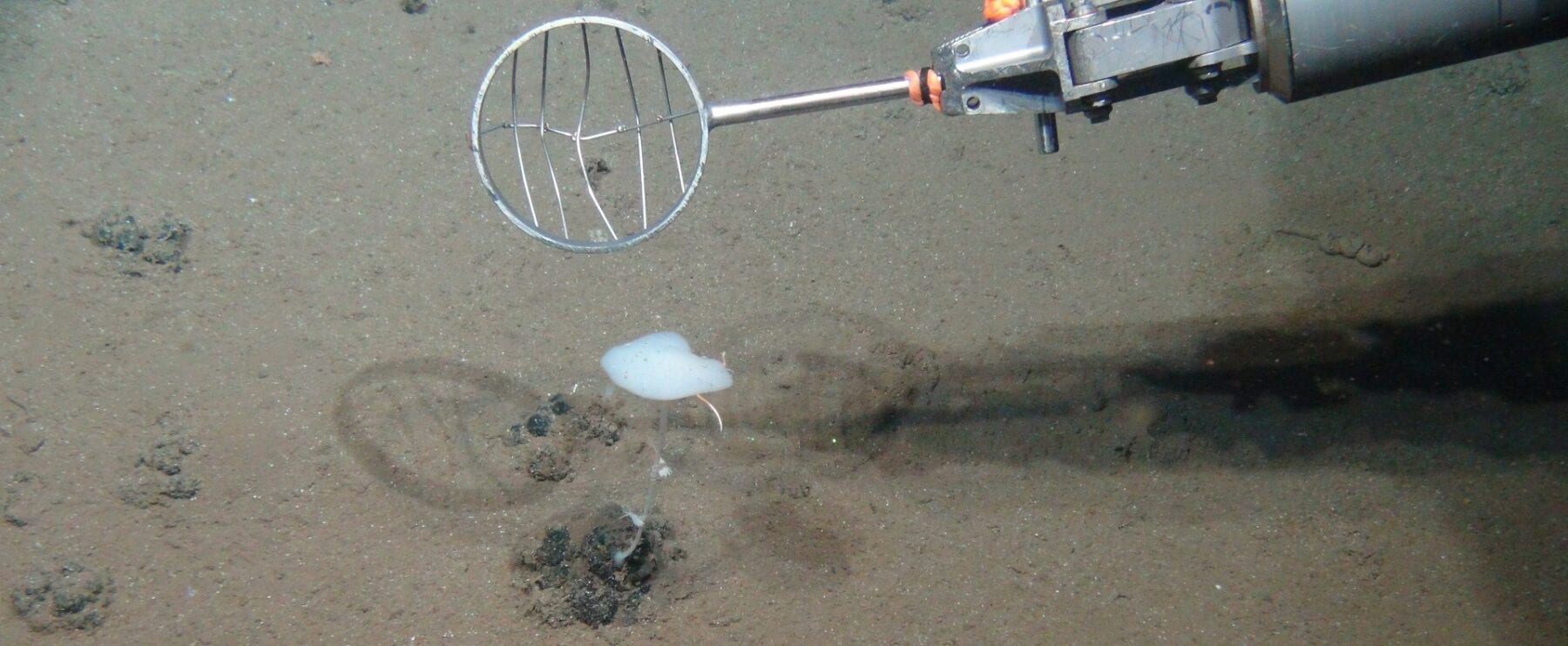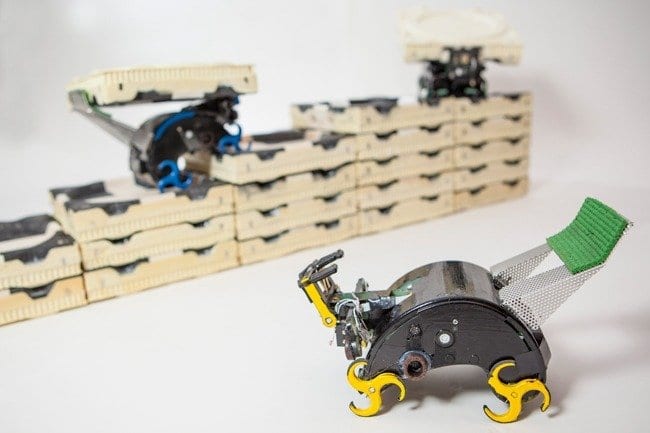
“We’re really in the dark when it comes to the ecology of the deep sea,”
Technological advances have made the extraction of deep sea mineral and precious metal deposits feasible, and the dwindling supply of land-based materials creates compelling economic incentives for deep sea industrialization. But at what cost?
“We’re really in the dark when it comes to the ecology of the deep sea,” said Linwood Pendleton, director of the Ocean and Coastal Policy Program at the Nicholas Institute for Environmental Policy Solutions at Duke University. “We know a lot about a few places, but nobody is dealing with the deep sea as a whole, and that lack of general knowledge is a problem for decision-making and policy.”
Pendleton is one of the speakers for the symposium “Deep Ocean Industrialization: A New Stewardship Frontier” on Sunday, Feb. 16 from 1:30-4:30 p.m. CST at the annual meeting of the American Association for the Advancement of Science (AAAS) in Chicago.
Cindy Lee Van Dover, director of the Duke University Marine Laboratory, and Lisa Levin of the Scripps Institution of Oceanography at UC San Diego are joining Pendleton and other experts in calling for a stewardship approach to deep sea development.
“It is imperative to work with industry and governance bodies to put progressive environmental regulations in place before industry becomes established, instead of after the fact,” Van Dover said. “One hundred years from now, we want people to say ‘they got this right based on the science they had, they weren’t asleep at the wheel.’”
Knowing what kind of regulations to put in place is complicated by the fact that the deep sea crosses political, geographic, and disciplinary boundaries, and there is still much about deep sea systems that is unknown.
“We need international agreements and an entity that can develop and oversee deep-ocean stewardship,” said Levin, “We also need multiple sources of research funding that can help provide the scientific information that we need to manage the deep sea. All of this will require efforts that bridge several disciplines and engage stakeholders in these discussions.”
Engaging stakeholders and society in an issue that takes place miles from land and fathoms underwater can be a daunting task, especially in the face of economic arguments for mining the deep sea for materials used in products that society values, like cell phones and other electronics.
“The deep sea is out of sight, out of mind, and because there isn’t a specific human society that will be directly impacted by the negative consequences of extraction, there’s a whole level of concern that isn’t being expressed when it comes to deep sea industrialization,” Van Dover said. But that doesn’t mean that the consequences don’t exist, from changes in marine food webs to shifts in oceanic and atmospheric chemical composition.
“Extraction from the deep sea is a tradeoff. Is the value of what we’re extracting greater than the damage?” Pendleton asks. “Are there ways to extract that might be more economically costly but have lower ecological impact? How can we repair the considerable damage that has already been done to the sea floor through trawling, pollution, and other practices? These are questions that we need to answer before industrial activity gets ahead of scientific understanding,” Pendleton said.
“There’s just so much that we don’t know about the deep sea, and we need that basic research before we form policy—but we also urgently need policy before this window of opportunity closes,” Van Dover said, “This is environmental management in a place where we’ve never conceived of it before, and we need to start the conversation about how we’re going to go about it.”
The Latest on: Deep Ocean Industrialization
[google_news title=”” keyword=”Deep Ocean Industrialization” num_posts=”10″ blurb_length=”0″ show_thumb=”left”]
via Google News
The Latest on: Deep Ocean Industrialization
- STAFF OPINION: Why ‘The Lorax’ is arton April 25, 2024 at 10:13 am
Robert Rauschenburg completed a conceptual piece of art after one month of difficult work. The result was a blank canvas with faint smudges of charcoal and oil pastels. This art piece, “Erased de ...
- Another Crab’s Treasure Reviewon April 24, 2024 at 10:43 pm
Kril the hermit crab has been forced on a treasure hunt after his prized shell is repossessed, and neither the onset of an underwater industrial revolution nor the hostile sea life is going to make ...
- Earth Day: A message for the fossil fuel industry in Texason April 23, 2024 at 11:31 pm
Science is clear that we can’t burn all the known reserves and maintain a livable climate. For the sake of freedom, prosperity, national and global ...
- 12 new books to honor Earth Dayon April 22, 2024 at 3:59 am
The first book, “Gaia’s Web,” maps the broader terrain for the more focused books that follow. We need an “environmentalism [that] can combat climate change, restore biodiversity, cultivate empathy, ...
- Weaving Natureon April 21, 2024 at 9:18 pm
Artist David Bacharach creates "The Mounds," a major outdoor arts installation that confronts global climate change.
- Another Crab's Treasure Devs Detail Its Underwater Settingon April 19, 2024 at 5:00 am
In a Game Rant interview, the Aggro Crab team discusses the rich underwater world of the upcoming Soulslike game Another Crab's Treasure.
- Ron Zacapa No. 23 Centenario: The Ultimate Bottle Guideon April 19, 2024 at 2:15 am
Guatemala may not be the first place you expect a great rum to come from, but Ron Zacapa Centenario Sistema Solera No.23 proves otherwise.
- Another Crab's Treasure is a Soulslike Game Built on Vibeson April 18, 2024 at 5:00 am
Another Crab's Treasure is a Soulslike game, but aside from a few important mechanics, it marches to the beat of its own drum.
- Harold Halibut Review - Lost In Its Own Deep Seaon April 17, 2024 at 12:39 pm
Harold Halibut is a triumph in its characters and visuals but struggles to stay afloat under its own scope and ambitions.
- We Are Living in the Pyrocene—At Our Perilon April 12, 2024 at 11:04 am
Most spectacularly, the pyric transition extended into remote lands—forest reserves, nature preserves, the distant bush, the outback. Officials applied the new counterforce made possible by third fire ...
via Bing News










